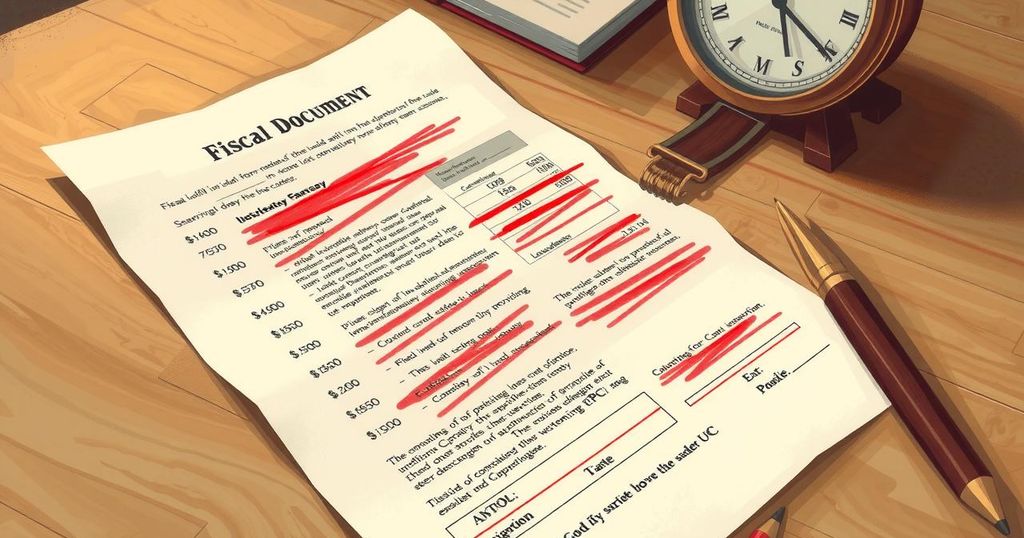South Africa’s Finance Minister presented a revised budget with a smaller VAT increase, proposing a one-point hike to 16% by 2026/27. The Democratic Alliance opposed the budget, highlighting economic struggles such as high unemployment and inequality. The government earmarked over one trillion rands for infrastructure improvements, but support from key political parties remains a challenge.
On Wednesday, South Africa’s Finance Minister Enoch Godongwana presented a revised budget with a reduced value-added tax (VAT) increase. This follow-up proposal suggested raising VAT by one percentage point to 16 percent by the 2026/27 financial year. Despite this effort to accommodate public sentiment, the announcement was met with opposition from key political parties, demonstrating the challenges faced within the governmental structure.
The original budget, which included a controversial two-percentage-point VAT hike, had been held back shortly before its release. The revised proposal involves a phased implementation: a 0.5-point increase in 2025/26 and another in the following year. Nonetheless, this adjustment did not garner the necessary support, particularly from the Democratic Alliance party, which openly declared its opposition.
Minister Godongwana indicated that inflation-linked increases to personal income tax brackets were not planned, citing inflation rates at 3.2 percent in January. He expressed that increasing either corporate or personal income tax would hinder revenue generation and negatively impact investment and economic growth, arguing instead that VAT impacts the entire populace.
South Africa’s economy, although the most industrialized on the continent, faces significant challenges, including a staggering employment rate that exceeds 32 percent and pervasive inequality. With approximately two-thirds of the 62 million citizens living in poverty, as reported by the World Bank, the economy grew a mere 0.6 percent in 2024 due to failing infrastructure and widespread corruption.
Minister Godongwana articulated the necessity for addressing urgent service delivery needs vital for developmental goals, proposing over one trillion rands ($54.4 billion) in spending over three years on improvements across various sectors, including transport and energy. However, critics from the pro-business Democratic Alliance warned that the current budget could lead to increased poverty levels among the populace and jeopardize the future of the government.
In conclusion, the revised South African budget presented by Finance Minister Enoch Godongwana has faced significant backlash despite a proposed reduction in VAT increases. The opposition from the Democratic Alliance highlights the ongoing economic challenges, including high unemployment and persistent inequality. The government’s ambitious spending plans, aimed at addressing pressing infrastructure needs, will require broad political support to be effective and foster economic recovery.
Original Source: www.france24.com




